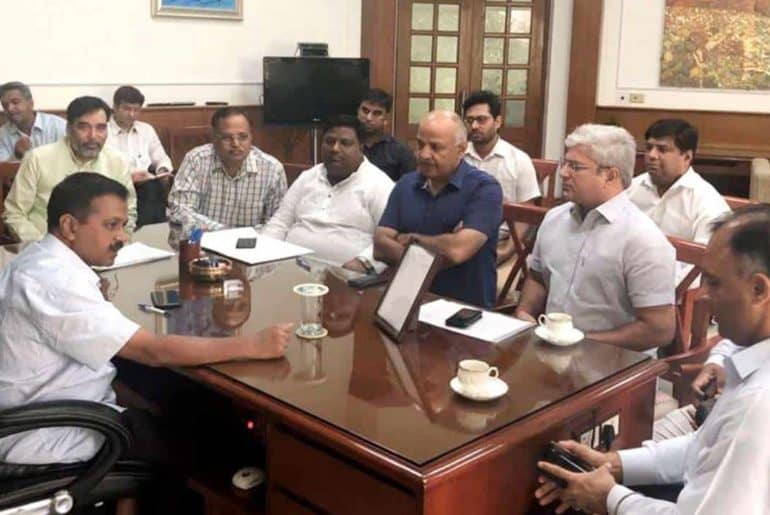The adrenalin rush on the first day of college, to the jitters on the first day of fests, college gives you a taste of it all. But how different is the teacher-student equation in college from the equation in school? Let’s find out.
For most of us, the transition from school to colleges has been fascinating at the very least, as we learn to navigate through the freedom in the college corridors. After twelve years of getting discipline ingrained into every cell of our body, college sweeps in like fresh air. This evolution from schools to colleges impacts our relationships too- be it friendships, or teacher-student relationships. While our friendships also change as we enter the Delhi University (DU), there is a stark difference in the way our relationships build with professors in DU.
In schools, we were used to the everyday prayers and good morning greetings as soon as the teacher entered the class. In DU, though, the obligatory “good morning, ma’am/sir” rituals bid you farewell.
A prime characteristic of the teacher-student relationship in school life was the presence of this teachers’ pet, no matter the school or the subject. The child who would always butter up the teacher and volunteer for all the work (and who we all were secretly annoyed with) to get those extra two marks in exams. However, in college, barely any of that works. “Forget favouritism from professors, they teach and that’s it. That buttering doesn’t work here,” says Leha Biswas, a student at Lady Shri Ram College.
In schools, we always had this one teacher who would make it their mission to personally be updated with what is happening in their students’ lives. Through summons to the staff room to hushed conversations in the class, this teacher knew more about you than your classmates did. At the same time, you could somehow always count on them to get you out of those principal’s detentions. In college, though, the relationship cools down. “I have the coolest teachers, so we have a professor who would be leaving soon, we told him that we would miss him. His response was the best – “Oh come on, it’s too soon to miss me.”
We all were also very used to the teachers scolding us for not finishing our classwork, for not submitting our assignments, for not faring well in exams, for not being quiet in class, for not… you get the point! School was indeed a second home where sometimes the only right way to behave was how your superiors wanted you to. Coming to college did make us all realise it is okay to let go sometimes. Moreover, the professors don’t mind a few mass bunks, which was a sin back in school. Harsh Singh, a first-year student at Shri Ram College of Commerce said, “In just the first week of college we bunked a class, casually walked our way to Hudson lane for lunch! I guess this sounds quite normal, but for people coming fresh from school where all sorts of fire alarms would go off and the school would come charging at you with tear gas bombs, lasers, and tranquillising darts, even if you step out of your classroom in a free period, I must say that there is definitely some contrast here”.
Teachers at DU have an ornamented CV, jewelled with achievements and degrees. Well, it would be tough to generalise them, but, if you love your course then they would make you sing. Nevertheless, they would make you yawn as well! They don’t restrict you to be glued to your books – they want you to participate (but not too much!). They address every taboo for which you were shush-ed in school. They know that their students are adults and dialogues form a part eventually. Be it the menace of the education system or random talks, casual to heated discussions are pretty usual.
And let’s address the elephant in the room; they do know your craze for the much-awaited fests. And hold on for a second, brushing off the dust from books ten days before semester examinations, well that is not a secret, professors know that deal! The attendance fiasco, although, remains a challenge as getting their sympathy over Extra Curricular Activities is a hard nut to crack.
Where school provided comfort, college provides novelty. Nighat, a first-year student at Aryabhatta College says, “In school, we were attached to the teachers on an emotional level. In college, we can relate to our professors on a spiritual level.”
Both relationships have their own charms. Familiarising ourselves with the new environment should not make us forget our roots. And as students, it is for us to cherish our school teachers and look forward to our college professors!
Feature Image Credits: Saubhagya Saxena for DU Beat
Priyanshi Banerjee
[email protected]
Satviki Sanjay
[email protected]









